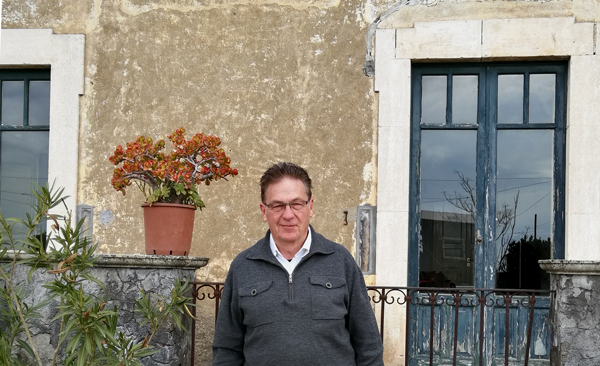Lucia Giuliano, Program Director of Relational Design, interviews John Thackara, our teacher for the City-Rural Connections’ workshop held in Catania in March 2017.
The master is called “Relational Design”: why is it useful, nowadays, to think in terms of relationships between things, people, places?
I think Relational Design is a fantastic innovation in the way we think about design: during the workshop we have discussed the difference between transactional design processes – which basically lead people to pay or exchange value for one off-experiences or things – and relational design processes: I think relationships are where we make the transitions to a much more healthy economy. We don’t necessarily have to have transactions to represent valuable relationships through time.
Relational Design it’s fantastic because it actually frames a new way for designers to do design things but with a kind of clear picture on what we are trying to achieve.
You came to Catania to explore with our students possible connections between the countryside and the city: can you explain how city people can reconnect with rural areas, food, landscapes, and why is this supposed to be good?
The workshop and the explorations we have done in the last three days in Catania have been looking for different ways in which city people can connect with country-rural situations, not just on a one-off basis but with a relational purpose. How can we be connected to the land or to farmers or to food on an ongoing basis? We can order food directly from farmers or visit an “agriturismo”, but they are all a kind of one-off, never-come-back type of situation and I think that’s ok, but only as step towards something longer-term, towards something where your visit leaves something of value behind, rather than taking something for yourself. We’re looking for something that’s fundamentally different from a transaction where you pay money, come for a couple of days, have an experience and then go home feeling better without necessarily leaving the place or the farmer in a better situation. That’s what we’re exploring: how we can make that shift and move forward.
What did you observe in those Sicilian farms you visited? Are they on the right path to pursue a sustainable system?
The farms we visited have the elements of what the future can be but they have many kinds of challenges obviously, like any farmer throughout history. It’s never easy.
We have tried to be cautious about projecting onto them what we would like to see and as we sat talking to the farmer some issues emerged that are not so easy to fix, but that’s when you get a more exciting opportunity to do this over a longer period of time.
There’s a lot of little things that can step by step make the situation of one farm better, or connect one farm to another farm, it’s all about relationships that designers can help make to happen.
So you really think relational designers can help them?
The course is partly about solving problems but it’s also about exploring priorities, because there will never be a perfect farm with no difficulties – never in history has there been such a thing. It’s about having designers as part of the eco-system around the farm, and the designers can be the people who connect the farm with resources, or people, or places that might be helpful. So we’re not designing solution that will last forever, we’re just being part of that kind of team.
Although you’ve only been here in Sicily for a couple of days, what are your first impressions, compared to the places that you’ve visited before?
It would be crazy to make a judgement after just two or three days but I completely feel a different atmosphere from the north of Europe, obviously. It is closer to India than I expected – I came here directly from Mumbai more or less.
In a very positive way, I feel there is a sense of people living day by day; relationships with the place, with family, with networks and with each other are clearly very important. Of course, as somebody coming from outside I need intermediaries to tell me what I am looking at, but I think it’s one of those situations where I see a lot of amazingly good-quality activities whereas people who live here probably don’t think they are good-quality, because they’ve been told for so long that they are poor Southern people. And I think that the only real value that visitors like me have is to say: you have a fantastic land, food, culture, history… all this stuff is amazing, do not accept to be regarded as a problem. You have assets that can be refreshed and connected and used in new ways.
Sicily, for me, is not a problem area, it’s full of wonderful opportunities and as an outsider it is my job to tell you that. Then it’s for you to decide how to deal with it.

